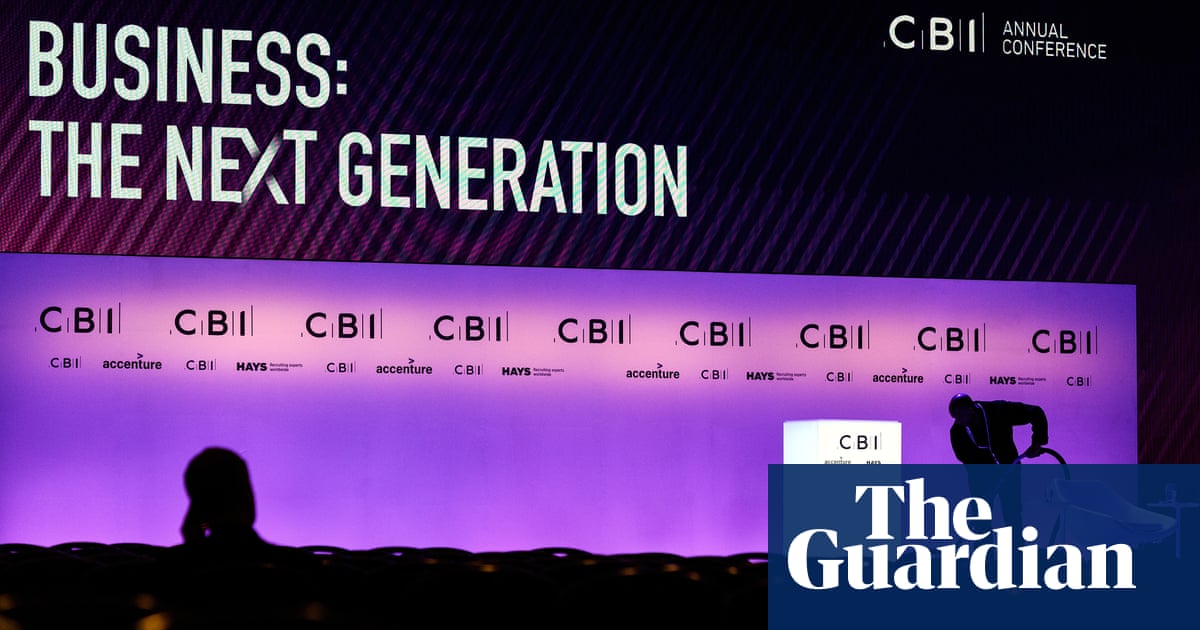
The Confederation of British Industry has admitted it failed to “filter out culturally toxic people” from its ranks, leading to “terrible consequences” including allegations of sexual harassment.
The CBI president, Brian McBride, said in a letter to its members that the organisation had “made mistakes” and “badly let down” its staff, after a series of revelations in the Guardian about alleged misconduct by employees, including two women who said they were raped.
The future of the organisation is now hanging in the balance, McBride said, saying he simply did not know if members would be able to “consider trusting us again”.
The remarks come after more than 50 of the organisation’s most notable members – including John Lewis and NatWest – publicly quit or suspended their links to the business group on Friday after fresh allegations including a woman who said she was raped by two male colleagues. After the exodus, the CBI announced it was suspending all membership and policy activity until an extraordinary meeting in June, when members will vote on its future and purpose.
The government and the Labour party have also suspended ties with the lobby group – which has dominated business policy for almost 60 years – following the string of allegations.
McBride said a “number of people” have been dismissed in the wake of the allegations. He said the CBI, Britain’s most prominent business lobby group, had been “complacent” and “communicated poorly and ineffectively with its members”.
The letter to members included a summary of some of the recommendations made by an independent investigation carried out by the law firm Fox Williams. The firm was asked to investigate cultural concerns at the lobby group after the Guardian revelations.
In a series of articles, the Guardian revealed allegations of rape, attempted sexual assault, harassment and drug taking.
Other key points include:
Staff “rightly expected” to have “a safe environment” and they were failed.
The group did not sack people when it should have and instead “tried to find resolution in sexual harassment cases when we should have removed those offenders from our business”.
It failed to filter out “culturally toxic people” during the hiring process.
Its failings “led victims of harassment or violence to believe that their only option was to take their experiences to a newspaper”.
The CBI’s approach also allowed a “very small minority of staff with regressive – and, in some cases, abhorrent – attitudes towards their female colleagues to feel more assured in their behaviour”.
The organisation paid “more attention to competence than to behaviour”.
Some managers were promoted too quickly without proper training.
Overall, the lobby group did not have sufficient measures in place to “protect our people from those seeking to cause harm and we didn’t react properly when issues arose as a result”, the letter from McBride said.
He said that the allegations of rape were not made known to the CBI’s senior leadership until they were revealed by the Guardian.
“I will tell you that every member of the CBI’s leadership team is devastated and appalled by the substance of these allegations. Our collective failure to completely protect vulnerable employees, to ensure that the alleged incidents could never happen in the first place, and to put in place proper mechanisms to rapidly escalate incidents of this nature to the level of senior leadership, these failings most of all drive the shame that I spoke to you about earlier,” McBride said.
“I hope that we can effectively serve alongside you once more in future, albeit as a changed, and much improved CBI,” he said, adding that initial failures in communication had made it look “cold-hearted and toxic”.
In an interview with the Daily Telegraph, McBride said he thought a reformed CBI would have to be slimmed down in order to manage with its new, reduced, finances. About 300 people work at the lobbying group, which tries to influence government policy on issues ranging from childcare support to energy.
“I think it’s likely to be smaller, because we’ll have less revenue, we’ll have to cut accordingly,” he said.
“There is no doubt that we will have a smaller budget going forward, because these members are not going to come back overnight,” he added.
Rebranding alone would not be enough, according to McBride, as the organisation must first be “sorted out”.
Rain Newton-Smith, the CBI’s former chief economist, has taken on the role of director general, and she is set to work on enforcing a “zero-tolerance” approach to misconduct.
The CBI has pledged to put forward proposals for a “refocused” offering for its members before June’s extraordinary general meeting.
Separate allegations related to the conduct of the CBI’s former director general Tony Danker, which were also first reported by the Guardian, were the subject of a different report from Fox Williams. Following its report on his conduct, Danker was dismissed from his role with immediate effect.
Danker said in an interview with the BBC last week that he felt he had been “the fall guy” for allegations unrelated to his own conduct and that his reputation had been “trashed”.
The letter also comes after the chancellor, Jeremy Hunt, told journalists at a gathering for business leaders and the government that he could not “wait for a reincarnation of the CBI or the CBI itself to get back on its feet to engage with business; we want to engage the whole time, every week, every day”.
The chancellor said: “There’s no point engaging with the CBI when their own members have deserted them in droves. So we want to engage with a body that speaks for business. It’s incredibly important for me, when I’m constructing budgets, to have someone I can turn to who speaks for British business.”
However, speaking at the event, the top fund manager Helena Morrissey said she was “personally worried that this [scandal] might put women off joining [the] industry”.












